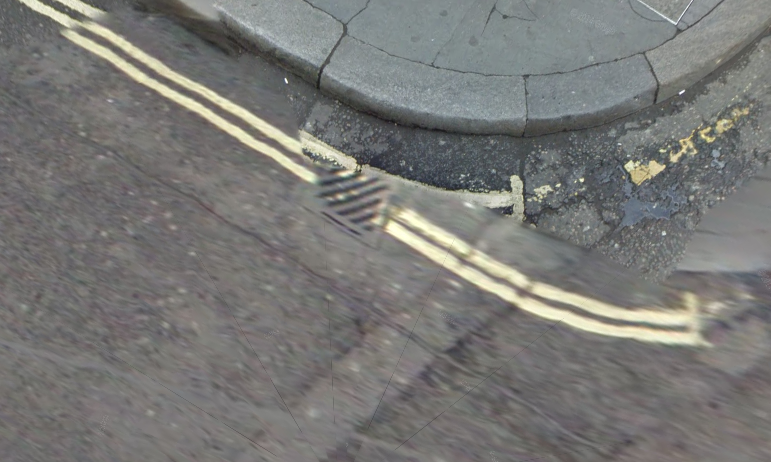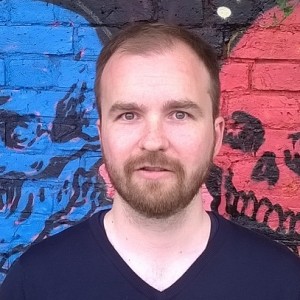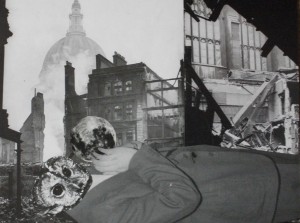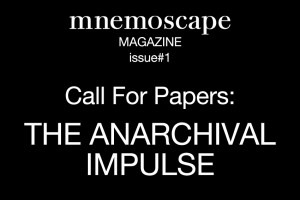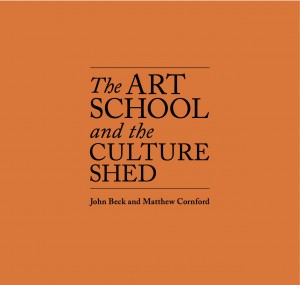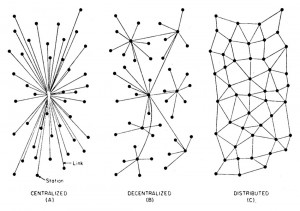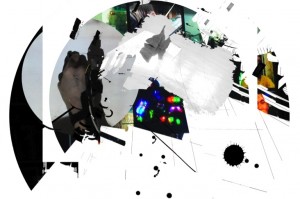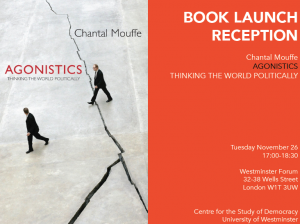News

For our American friends: Director of the IMCC’s Data Futures Lab, Peter Cornwell, is speaking at Princeton University on the Rhetorics and Pragmatics of Sustainability in the Digital Humanities.

Print Screen: Writing and the Image
The Photographer’s Gallery, London
Wednesday 17th December 2014
This symposium – a collaboration between the IMCC and the Photographer’s Gallery – addresses current thinking on the relationship between writing and the image, with particular emphasis on connections across the fields of experimental literature, photography, and film.
Presenters include: Laura Mulvey, Redell Olsen, Patrick Keiller, Jonathan Long, Daniel Kane and our own Leigh Wilson.
Laura Mulvey is Professor of Film and Media Studies at Birkbeck, University of London. A renowned film theorist, her influential work Visual Pleasure and Narrative Cinema (1975) and subsequent collection of essays Visual and Other Pleasures (1989) established feminist film theory as a field of enquiry. As well as publishing widely in film and media studies, she has also co-written and co-produced with Peter Wollen a number of films including Riddles of the Sphinx (1977).
Redell Olsen is a poet and text based artist whose visual work involves live performance with stills or moving image. Film Poems (Les Figues, 2014) collects the texts for her films and performances from 2007–2012. She is currently a Reader in Poetic Practice at Royal Holloway, University of London.
Patrick Keiller is a filmmaker and writer. His celebrated films dealing with the poetics of place include London (1994), Robinson in Space(1997), and Robinson in Ruins (2010). His commission for Tate Britain,The Robinson Institute, was exhibited in 2012 and a book of essays,The View from the Train: Cities and Other Landscapes, was published by Verso in 2013.
Jonathan Long is Professor of German and Visual Culture at Durham University. He has published extensively on writing and photography. His books include W. G. Sebald: Image, Archive, Modernity (Columbia University Press, 2007), and current research focuses on the photographic book in the Weimar Republic.
Daniel Kane is a poet, critic, and Reader in English & American Literature at the University of Sussex. His books include All Poets Welcome: The Lower East Side Poetry Scene in the 1960s (2003) andWe Saw the Light: Conversations Between the New American Cinema and Poetry (2009).
Leigh Wilson is Reader in English Literature at the University of Westminster. She writes mainly on modernism and British fiction and her recent publications include Modernism and Magic: Experiments with Spiritualism, Theosophy and the Occult (2013).
Free admission, but booking required. Further details at: http://thephotographersgallery.org.uk/print-screen-writing-and-the-image#-INFO
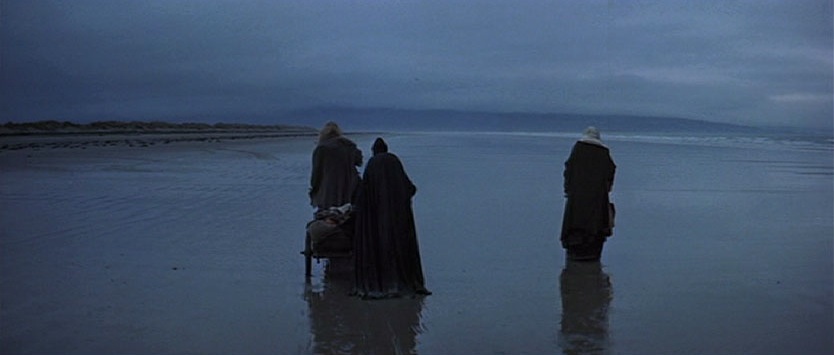
Wednesday 10 December, 4.15pm
Room 311, University of Westminster, Wells Street, London W1T 3UW
Dr Nigel Mapp, University of Westminster
“The very painting of your fear”: Macbeth as Sceptic Medium
Any convincing account of agency – one that does not, for instance, sceptically limit responsibility to intentions – must see it as theatrical. Deeds are socially expressed and corrigible. What then of Macbeth’s theatricality? The play seems to offer a drastically over-determined picture of agency – of who does and decides to do what, and why. But what sort of “picture” of a dismantled significance is this? The paper considers the question in terms of Macbeth’s Stoic and nominalist emphases and the violent self-domination, effected through faith and adherence to alien law, represented in its protagonist. The play, it is argued, mortifies this wish to escape a fate internally related to deeds – call it the tragic – by intensification of what appears to be a sceptical process of formal self-reflection. By examining the role of some visions and images, and of the iconoclastic (demystifying, false) theories of these laid out in the play, the reading pieces out a theatre of a modern fate: the deathliness that scepticism would ward off, but everywhere reproduces.

Plastic Words
December 2014 – January 2015
Raven Row, 56 Artillery lane, London E1 7LS
The East London gallery Raven Row is playing host, for six weeks across December and January, to a series of public events that mine the contested space between contemporary literature and art. Speakers include (on Weds 21st January) the IMCC’s David Cunningham, in conversation with Peter Osborne on ‘New Contemporaneities’, as well as host of others including Brian Dillon, Chris Kraus, Tom McCarthy, Donald Nicholson-Smith and McKenzie Wark.
Further details at: http://www.ravenrow.org/forthcoming/
Flier listing all the events attached here: Plastic Words_RR_PW_flyer.
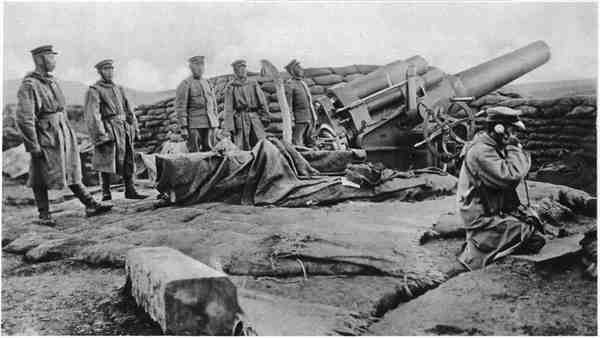
Our very own Anne Witchard will be appearing an exciting-looking event at Asia House in February to mark the publication of a new series of Penguin China books which includes Anne’s England’s Yellow Peril: Sinophobia and the Great War:
From Peking to Paris: China and the First World War
February 3rd 2015, 6.45 – 8.00 pm
Asia House, 63 New Cavendish Street, London W1G
During the First World War, 95,000 Chinese farm labourers volunteered to leave their remote villages and work for Britain. They were labelled “the forgotten of the forgotten”, as their stories failed to form part of the public record on the War. This is just one example of many of the lesser known stories relating to China and the Great War. But these stories are now starting to be addressed.
To mark the centenary of the First World War, Penguin China has published a series of short histories on the economic and social costs it brought to China and the Chinese. Each book – written by a leading expert in the field – tells a fascinating tale which will fill the gaps of your China and WWI knowledge, including the only land battle in East Asia fought by Japan and Britain against the German concession in Shandong.
Further details at: http://asiahouse.org/events/peking-paris-china-first-world-war/

Wednesday 26 November, 4.15pm
Room 311, University of Westminster, Wells Street, London W1T 3UW
Dr Daniela Caselli, University of Manchester
“Modernist Children”
Modernism and the child are a rather disconcerting couple: where the first term stands for serious and radically experimental literature suspicious of the masses, the second is associated with spontaneity, simplicity, and sentimentality. Yet, the apparent incompatibility of this pair (artifice and nature) is celebrated by modernist authors: in his writings of the 1920s, Roger Fry recommended artists to look at the world with the innocence of a child; Virginia Woolf referred in her diaries to her ‘childish vision’; and Pablo Picasso famously quipped that ‘if an adult can draw like a child at forty he is a genius’. Joyce’s Dubliners and A Portrait of the Artist as a Young Man are often read as reproducing a child’s mind, and so are Woolf’s The Waves and sections of To the Lighthouse. Generation and parturition are central metaphors in H.D.’s work, whilst children are the focus of many short stories by Katherine Mansfield. Walter Benjamin broadcast children’s programmes in 1929 and 1930; Gertrude Stein made extensive use of ‘childish’ language in her prose; and Wyndham Lewis, in contrary fashion, deplored the ‘child cult’ that, for him, afflicted modernists from Stein to Hemingway and Anderson. The pervasiveness of the child’s presence in early twentieth-century literature has gone almost unrecorded . The project from which this paper derives argues that such an oversight is relevant because the child in modernism signals a disavowed attachment to the notion of the human in the midst of revolutionary and self-critical aesthetic practices. The paper looks at some examples from Woolf, Joyce, and Beckett to analyse the allegedly invisible nexus of self-evident, material affectivity – the child – in the context of a disenchanted project of modernism that is still, however, fascinated by the pull of materiality.

David Cunningham’s review of Fredric Jameson’s recent The Antinomies of Realism in the latest issue of Radical Philosophy is currently up as a freebie on the RP website.
You can download it here: http://www.radicalphilosophy.com/article/the-contingency-of-cheese
CANCELLED DUE TO ILLNESS. WE HOPE TO RESCHEDULE THIS EVENT SOON.
Fitzrovia Atlas and Stepaway Magazine present an evening of new writing by Joan Byrne, Tony Rickaby, and Kate Wise.
Thursday 9 October 2014, 6-30pm
Fyvie Hall, University of Westminster, 309 Regent Street, London W1B 2HW
Admission FREE. All Welcome.
FITZROVIA ATLAS is a project based in the Department of English, Linguistics and Cultural Studies at the University of Westminster dedicated to exploring the literary and cultural life of Fitzrovia.
STEPAWAY MAGAZINE is an established online literary magazine that publishes the best urban flash fiction and poetry by writers from across the globe. http://stepawaymagazine.com
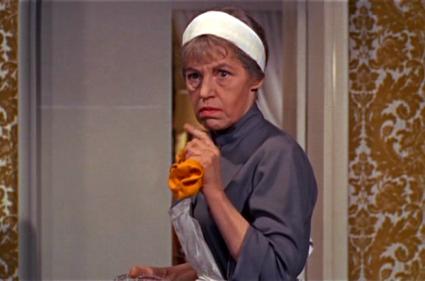
A new academic year and a new series of fortnightly English Literature and Culture research seminars, kicking off with our own Monica Germana.
All seminars will be held in room 311 in the University of Westminster’s Wells Street building at 4.15pm, followed by the obligatory retirement to The Green Man. All welcome.
Wednesday 1 October
Dr Monica Germana, University of Westminster
“Poisoned Stilettos, Diving Knives, and Lipstick Guns: Phallic Fashion and Bond ‘Girls’”
Wednesday 15 October
Dr Tommi Kakko, University of Tampere; Visiting Research Fellow, IMCC
“Dr Hibbert’s Theory of Apparitions and Hallucinations”
Wednesday 29 October
Professor Cian Duffy, St Mary’s University
“‘[T]hat voyage will not cease to stir the imagination’: Fridtjof Nansen’s Farthest North, the sublime, and the Arctic route to Romantic Nationalism”
Wednesday 12 November
Dr Andy McStay, Bangor University
“Exploring the Pharmacology of Empathic Media: Health, Wearables and Analytics”
Wednesday 26 November
Dr Daniela Caselli, University of Manchester
“Modernist Children”
Wednesday 10 December
Dr Gwilym Jones and Nigel Mapp, University of Westminster
Discussion on Shakespeare
The IMCC is delighted to welcome Tommi Kakko as our visiting research fellow during 2014-15. Tommi is based at the University of Tampere, Finland, and has published in journals and essay collections on a variety of topics including John Dryden, Daniel Defoe, intermediality, modernism and psychedelia. While based at the Institute, he is writing a book about hallucinations in early modern medical texts, occult writings and literary criticism. The aim of the project is to examine how theories concerning naturally occurring hallucinatory experiences, visions and apparitions were first developed and how they evolved before the birth of modern psychology.

Order your copy of Michael Nath’s cracking new novel, British Story, now!
Details at: http://www.route-online.com/all-books/british-story.html
What’s haunting Kennedy? He believes that literary characters exist just like you or me, but he’s getting nowhere trying to prove it. His Falstaff project is an embarrassment; Barbara’s wanting a baby; there’s that trouble from last autumn; he can’t even tell a story. His fortunes change when he’s befriended by Arthur Mountain, a larger-than-life Welshman with a peculiar take on history and a grand distaste for the modern world. Together with his trainspotting wife, snooty secretary and trusty machete, Arthur opens Kennedy’s soul.
Philosophical, frightening and hilarious, British Story is an adventure in imagination and a rallying cry for wonder. With this witty and critical examination of contemporary life, Michael Nath has called up the lost spirit of resistance. The stoplines are operational!
There will be a launch party for British Story in an upstairs room of a Central London pub that is a key setting in the novel. Monday 23 June, 6pm. It will be an epic literary evening. If you are in the vicinity and would like to join us for a drink, we’d love to see you. Email Route for further details: info@route-online.com
The idea of cinema in the mind of a painting: poetry, film, collage
Thursday 19 June, 6.30pm
ICA Studio, The Mall
, London
SW1Y 5AH
Free admission
As part of IMCC’s Print Screen: Writing and the Moving Image series, poet Simon Perril will be reading at the ICA next Thursday, followed by a drinks reception. All welcome.
Simon is a poet, critic, and programme leader for Creative Writing at De Montfort University, Leicester. His poetry publications include Archilochus on the Moon (Shearsman 2013), Newton’s Splinter (Open House 2012), Nitrate (Salt 2010), A Clutch of Odes (Oystercatcher 2009), and Hearing is Itself Suddenly a Kind of Singing (Salt 2004). He has also published in magazines such as P.N. Review, Jacket, Poetry Wales, Shearsman and Angel Exhaust. He is the editor of The Salt Companion to John James and Tending the Vortex: The Works of Brian Catling, and has also written on Tom Raworth, J.H. Prynne, John Tranter, and Peter Riley, among others. For the last decade he has made visual collages, and has a collage ‘novel’ in progress called Under Austerity Rubble, Ancient Bird Folk Lay Future Eggs.
To mark the launch of Mnemoscape Magazine – edited by two former students at the IMCC – which coincides with the ten years anniversary of the publication of Hal Foster’s essay ‘An Archival Impulse’ (2004), the editors would like to prompt a reflection on the notion of the ‘anarchival’.
‘An Archival Impulse’ has establish itself as a seminal essay tackling the emergence of a specific archival tendency in contemporary art. However, as Foster noticed, this trend could perhaps be better defined as an ‘anarchival impulse’. The first issue of Mnemoscape Magazine would like to return to Foster’s early intuition and propose an epistemological shift in the study of archival art practices, one that privileges their anarchival disposition, while speculating on the positive and liberating aspects of forgetting.
Submissions are invited of single-authored or joint papers, interviews, reviews of art exhibitions and art projects that are concerned with the anarchival impulses. Send a 300 words abstract and CV to: mnemoscape@gmail.com Deadline: 30 June 2014
The Institute is delighted to welcome Rowena Clarke as our Junior Visiting Research Fellow for Summer 2014.
Rowena is a doctoral student at Boston College in the United States where her research is focused on the cultural production of space through literary and filmic texts. She is particularly interested in popular genres and forms, and the role they play in helping to construct postwar conceptions of home, particularly in relation to suburbia and social housing. While at the IMCC, Rowena is hoping to carry out research on the British comic book 2000 AD, and on J.G. Ballard’s suburban fiction.
For a copy of the book, please contact Dean Kenning, Faculty of Art, Design & Architecture, Kingston University (D.Kenning@kingston.ac.uk).
For further information on Beck and Cornford’s art school project, email John Beck (j.beck@westminster.ac.uk) or Matthew Cornford (m.cornford@brighton.ac.uk).
The Continuities of Cold War Systems: A Symposium
Thursday 27th February 2014, 9am-6pm.
The Boardroom, University of Westminster, 309 Regent Street
Hosted by John Beck (Westminster) and Ryan Bishop (Winchester School of Art), participants include Ele Carpenter (Goldsmiths), Fabienne Collignon (Sheffield), Mark Coté (King’s), Dan Grausam (Durham), Ken Hollings (Middlesex), Adrian Mackenzie (Lancaster), Jussi Parikka (Winchester), John Phillips (Singapore), Adam Piette (Sheffield), Jennifer Pybus (Winchester), James Purdon (Cambridge), Aura Satz (London Consortium), Neal White (Bournemouth).
From the late 1940s through the 1980s systems analysis, cybernetics, and information theory came to shape military, business, government and academic thinking on a wide array of subjects. The influence of such thinking is also evident in the arts, from the so-called systems novels of the 1960s and 70s, to minimalist and electronic music, conceptual art, and the emergence of electronic media. The end of the Cold War did not end systems thinking; indeed, given the phenomenal expansion of computer technologies into every aspect of contemporary life it is fair to say that we are now living in a world imagined and engineered during the Cold War. This event seeks to address the ways the Cold War, particularly through a consideration of systems thinking, continues to shape the contemporary.
RSVP John Beck: j.beck@westminster.ac.uk.
Kreider + O’Leary, ‘Ways to Cut the Earth Open’
Friday 17 January, 7pm
The Old Cinema, University of Westminster, 309 Regent Street
‘Ways to Cut the Earth Open’ is a cross-platform survey that examines a number of sites recently explored by Kreider + O’Leary in their nomadic practice. Using the sectional cut and the filmic splice as starting points they explore strands from their recent site-based works to thread together narratives of place and displacement. Predicated on an aesthetics of response while engaging with the complexity inherent in a given site, their work is both a form and act of communication: therefore, and necessarily, clouded by ambiguity. This prompts a critical investigation into the role of ambiguity for creative practices that relate to site, including writing and the moving image.
Kreider + O’Leary are a poet and architect who collaborate to make performance, installation and time-based media work in relation to sites of architectural and cultural interest. Since 2003, they have worked collaboratively to construct work in prisons, churches, military sites, film locations and desert environments, as well as in more traditional gallery venues across the UK, Europe, the US, Australia, and Japan. Their work ‘Light Vessel Automatic’ was exhibited at Performing Architecture at Tate Britain in February 2013. They are currently exhibiting a new work entitled ‘Edge City’ at the Lisbon Architecture Triennale.
Visit: http://www.kreider-oleary.net/
All welcome
The Historical Novel of the Contemporary: A Symposium
Tuesday 3rd December, 2-6pm
Carroll / Fletcher Gallery, 56 – 57 Eastcastle Street, London W1W 8EQ
Speakers: Emmanuel Bouju (Rennes), David Cunningham (Westminster), John Kraniauskas (Birkbeck), Fiona Price (Chichester), Leigh Wilson (Westminster)
The subject of a revival in recent decades, in both its ‘literary’ and ‘popular’ forms, for Georg Lukács the historical novel was, above all, that which narrated the ‘pre-history of the present’. Discussing authors ranging from Roberto Bolano to David Peace, Hilary Mantel to Wu Ming, this afternoon symposium considers the historiographic and political forms of the historical novel today as it might narrate the pre-history of our own contemporary.
All welcome and no need to register.

An excellent article up on the AHRC website about Anne Witchard’s China in Britain project, which is supported by the AHRC under the theme of ‘Translating Cultures’. The project looks at wider notions of China being ‘translated,’ examining the role that stereotypes have played in shaping perceptions of China and Chinese people in the West, and how they continue to do so.
Read it here: http://www.ahrc.ac.uk/News-and-Events/Features/Pages/Reading-China.aspx


The Institute for Modern and Contemporary Culture
University of Westminster Department of English, Linguistics and Cultural Studies
32-38 Wells Street, London W1T 3UW. United Kingdom.

